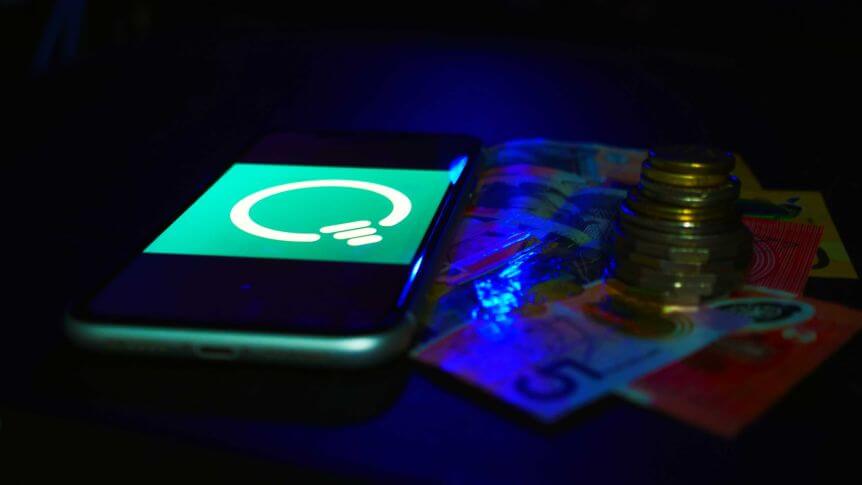
It is a form of money that few use and most probably do not even understand, but cryptocurrency has been slowly edging its way into the mainstream.
Key points:
- Emerging Australian digital currency aims to attract ‘mum and dads’, rather than ‘crypto-centrics’
- But reputational issues and price volatility has consistently plagued the widespread adoption of cryptocurrencies
- There is suggestions that bank and government intervention could reassure consumers in cryptocurrency potential
You can even pay for a night in a Gold Coast party limousine with a form of currency that did not exist this time last year.
“I didn’t know much about the cryptocurrency stuff but I wanted to learn because I missed out on that Bitcoin stuff,” said party limo operator Chris McMilan.
He said he began accepting payments via the Australian digital currency Qoin in June and about half-a-dozen customers used it since then.
“I’ve put a Qoin sticker on each vehicle so you might be driving along the highway and then go, ‘Oh, that hummer takes Qoin’,” Mr McMilan said.
But cryptocurrencies are known for their volatility and while the future looks bright for some, it may still be some time before you will be paying for your morning flat white with a QR code.
The search for stability
This decade-old field of finance has typically been the realm ‘crypto-centric’ with the computer skills and tools that are foreign to most.
But Bitcoin’s price surge in 2017 was followed by a slump that wiped 74 per cent off its value in less than 12 months, scaring many potential investors away in the process.

Qoin’s chief marketing officer Andrew Barker says its target market has been “mums and dads” looking for something more stable to buy into, with the mindset, “I’m not going to make a fortune overnight but I’m not going to lose a fortune overnight”.
He said Qoin’s price had grown from $0.15 at its launch in January to about $1.98, with 10,000 transactions so far.
The company has attempted to build a client base of almost 8,000 businesses, including jewellers and limousine hire, to give consumers products they can actually buy, rather than just a currency to invest in.
“They’re offering their idle products and services for the Qoin economy,” Mr Barker said.
“So based on each new Qoin merchant who joins the ecosystem, the value of Qoin increases.”
Because these businesses have a financial stake, it is hoped they will be less likely to divest suddenly if the price drops slightly.
“If you had more merchants leaving than joining the ecosystem, then sure, the Qoin value could go down,” Mr Barker said.
“But you won’t find that 10,000 [dollar] peak of Bitcoin that then drops down dramatically overnight.”
Stepping out of the dark web’s shadow
Australia’s market is becoming increasing crowded with more than 240 cryptocurrencies registered as the sector tries to find broader legitimacy.
“People were talking about crypto as a way to be anonymous, to be able to do some interesting transactions that weren’t looked upon well,” Mr Barker said.

“That really is changing, and regulation is bringing in less of that anonymous element.”
Griffith University lecturer in finance Victor Wong says “the future is really bright” but a “stable point” is needed.
“So if you have $10 today, it will be worth $10 in the future,” he said.
“Banks or government perhaps might issue their own version of digital currency.
“Once it is regulated and the value is consistent then consumers will feel like: “Alright, this is a currency just like another cash I’m holding, it is safe, it is regulated by this country and therefore I will use it’.”
Will crypto replace your debit card and cash?
Dr Wong said the adoption of cryptocurrencies could surpass debit cards within 10 years under the right market conditions.
“You need to have the assurance where you know that currency belongs to you [and] it will still belong to you in the future,” he said.
“We have got a government that recognises digital currencies as well as a tech-friendly environment — even the post office accepts the exchange of Bitcoin.”
But Mr Barker said, “we don’t see this as a world-changer”.
“We don’t see the crypto-economy taking over the traditional economy — there’s definitely a place for both,” he said.
“You need some things to have digital currency; you need internet connection, you need people to have the facility of mobile devices.”
ABC Gold Coast / By Dominic Cansdale
